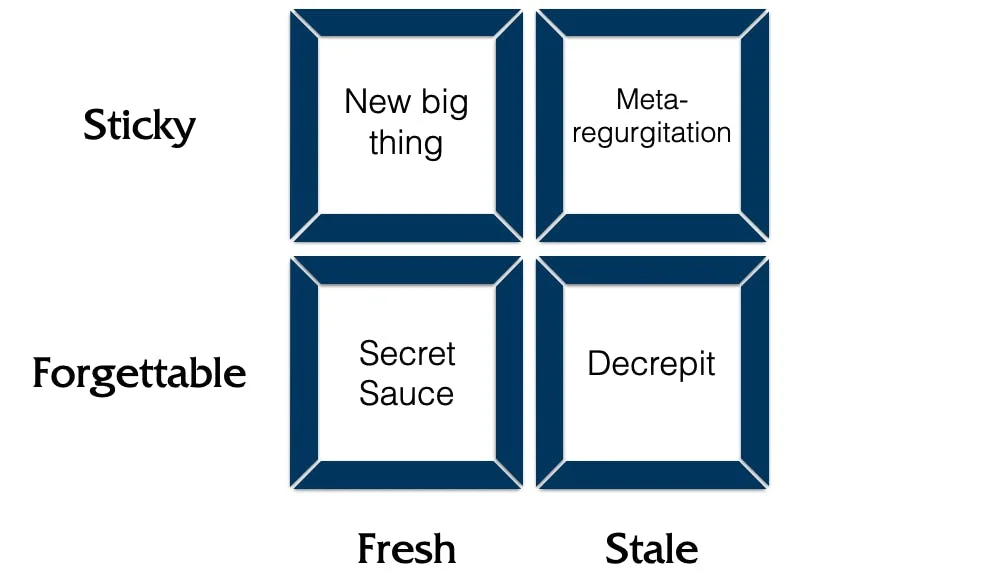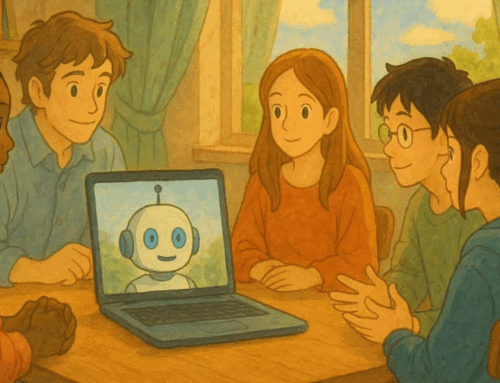Internet advice goes stale, but that doesn’t mean it goes away. You could be following advice that worked great 5 years ago, but it’s no longer working.
This is something I find frequently in my work as a marketer. Because I’m in the trenches, testing tactics, I can see what’s failing during a hype cycle.
I was in a private community recently, sharing my dissatisfaction with webinars. During the pandemic, webinars were great, and I based my business on them. (You can watch replays of my marketing webinars and virtual event webinars, if you like.)
But this year, it’s been really hard to get people to attend virtual events.
I have some thoughts on why this is happening:
- People are hungry for in-person events
- Webinars have over-saturated the market, because they are so easy to produce
- Most hosts are not skilled at earning attention during webinars
- Many webinars are bland and boring and long
- Short-form video content (TikTok, Reels, etc) delivers more actionable information with a lower burden of time invested
After sharing this perspective in a community, a member forwarded me an email from another marketer, who was singing the praises of webinars.
He has a course, of course, that teaches you how to produce your own webinars. This promotional email (sent last month) was full of reasons why webinars are the best way to grow your business right now.
This is the tail end of every Internet hype cycle: marketers are selling techniques that have already become ineffective.
Anatomy of a Hype Cycle
New bloggers will write blog posts about blogging, because in order to master something, it’s very helpful to teach it to others.
This means that many of the marketers marketing about marketing are newbies recycling what they have read elsewhere. (I am guilty of this, like every marketer in the world.)
Because I wrote a post five years ago with regurgitated advice, search engines will rank that post higher in their results than newer advice.
This means:
The worst advice could have the best SEO.
Reminds me of a story about an Egyptologist who went to grad school, and couldn’t find any job in Egyptology, except for teaching others in university. Dude was literally in a pyramid scheme.

Midjourney prompt: Making pyramids out of pyramids
“Everyone wants to tell you what to do and what’s good for you. They don’t want you to find your own answers, they want you to believe theirs.” – Dan Millman
Do you believe anything about the Internet that is based on hype? Think about one of your current beliefs about marketing on the Internet. Do you believe it because it’s true, or because everybody’s saying it?
If you can’t tell if the advice is true, maybe you shouldn’t take that advice right away.
Not all advice on the Internet is good advice.
I heard a story about an author who was advised to email his list of 15k people every day. 80% of those emails should be content, he was told, and 20% promo.
After implementing this strategy, his open rates decreased 20%, and his income dropped by $2k per month.
The advice worked for Groupon, a number of years before he tried it. But that doesn’t mean it was good advice for him, and his business, a few years later.
This is the supreme difficulty of marketing on the Internet: only testing will tell. You can’t determine what’s working, and what’s a waste of time, until you try it yourself.
Being a thought leader on the Internet is like being a trail guide in a moving labyrinth. You can show people the pathway you took, but the walls keep shifting. The path that worked last month might not work for anyone anymore – but the trail guides won’t tell you that, because they honestly don’t know. They are stuck regurgitating the same sticky messages that got them where they are.

Internet advice is untrustworthy – what makes sense today could be obsolete tomorrow.
So take all Internet advice with a grain of salt – including mine.
For what it’s worth, what I find most effective is a fresh idea, that people easily forget. To find an idea that isn’t oversaturated, you need to be willing to explore places where hype does not light the way.





Leave A Comment